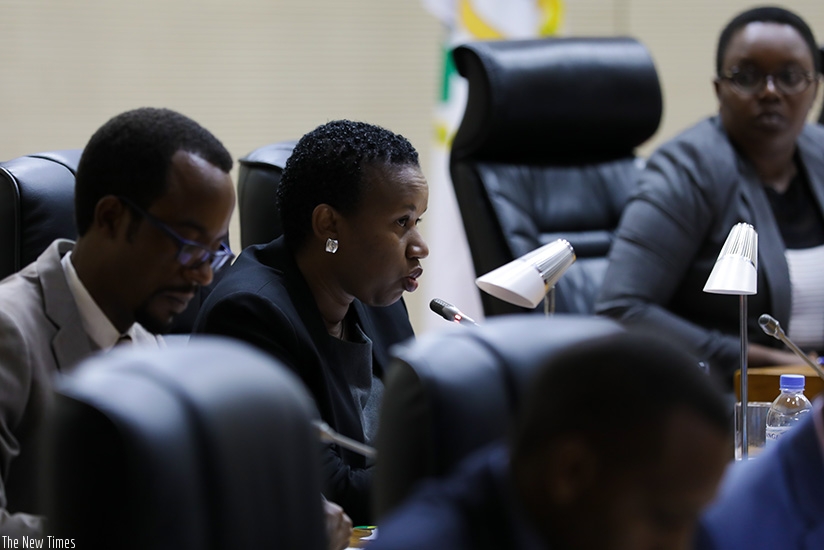Members of Parliament have renewed calls for the government to expedite setting up of a new minimum wage in the country to protect vulnerable workers from being cheated by some employers.


Members of Parliament have renewed calls for the government to expedite setting up of a new minimum wage in the country to protect vulnerable workers from being cheated by some employers.
The call came as the government introduced in the Lower House a bill seeking to review the labour law, yesterday.
The government is in the process of reviewing the 2009 labour law to comply with international labour obligations and improve relations between employees and employers in the country.
But several MPs told the Minister for Public Service and Labour, Fanfan Rwanyindo, that reviews of the labour law should also take care of setting up the minimum wage.
Under the proposed labour law, a ministerial order of the minister of labour will set up a minimum wage for different professions in both the informal and formal sector.
But some MPs said that waiting for a ministerial order to set up the minimum wage is a sign that the wage will never be set up, advising instead that the labour law should decide what is the minimum wage.
"This law should fix a minimum wage instead of sending the obligation to the ministerial order. Why can’t we have a debate here in Parliament about the minimum wage so that Rwandans can hear all about it?” said MP Juvenal Nkusi.
MP Thierry Karemera agreed, showing some frustration that the minimum wage has taken long to be revised.
"Up until when will we continue to wait for the minimum wage to be set up? Are we going to keep accepting promises that are never fulfilled? This issue should be analysed and debated deeply at the committee level,” he said.
Under law N°13/2009 of May 27, 2009 regulating labour in Rwanda, under article 76, it is stipulated that "the Minimum Guaranteed Wage (MGW) per categories of work shall be determined by a ministerial order from the ministry of labour after collective consultations with the concerned organs”.
But it has been nearly nine years without the government setting up the minimum wage despite several consultations on the topic.
Minister Rwanyindo told MPs that this time around the minimum wage will be set up, promising them that a ministerial order to the effect is almost ready and will be published as soon as the new labour law is gazetted.
"Once the new labour law is out, a ministerial order setting up a minimum wage will also be out. We will not continue talking about setting up a minimum wage without doing it. You can trust us on our word that a minimum wage will be set up. We have done a lot of consultations about this,” she said.
At Rwf100 per day, the country’s current minimum wage which was set in the 1980s is outdated and out of touch with today’s economic realities, a situation that has led labour unions in the country to push the government to revise the wage in order to protect vulnerable workers.
The International Labour Organisation (ILO) Minimum Wage Fixing Convention of 1970 indicates crucial elements to be considered while determining the level of minimum wages including the needs of workers and their families, taking into account the general level of wages in the country, the cost of living, social security benefits, and the relative living standards of other social groups.
The convention also states that economic factors, including the requirements of economic development, levels of productivity and the desirability of attaining and maintaining a high level of employment should be considered.
editorial@newtimes.co.rw


